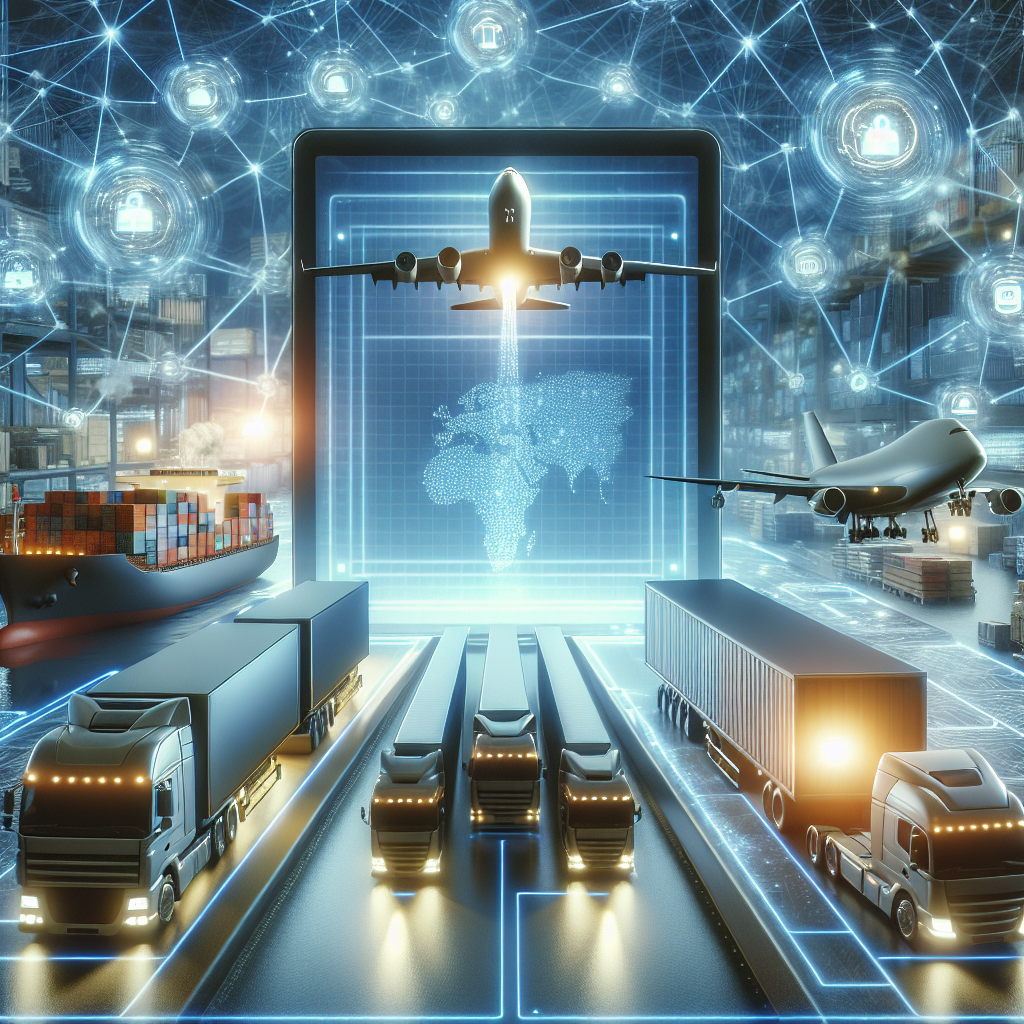The logistics industry has always been a complex and challenging ecosystem to navigate. With the rise of globalization and e-commerce, the demand for efficient and cost-effective freight forwarding and shipping services has never been higher. In recent years, artificial intelligence (AI) has emerged as a game-changer in the logistics industry, revolutionizing the way companies manage their supply chains and transportation networks.
AI technologies, such as machine learning, natural language processing, and predictive analytics, are being used to automate and optimize various aspects of freight forwarding and shipping operations. From route planning and optimization to real-time tracking and monitoring, AI is helping companies streamline their logistics processes, reduce costs, and improve overall efficiency.
One of the key areas where AI is making a big impact in freight forwarding and shipping is in route optimization. By analyzing historical data on shipping routes, traffic patterns, and weather conditions, AI-powered algorithms can identify the most efficient and cost-effective routes for transporting goods from one point to another. This not only helps companies save time and money but also reduces their carbon footprint by minimizing fuel consumption and emissions.
AI is also being used to improve the accuracy and reliability of real-time tracking and monitoring systems. By integrating AI-powered sensors and devices into shipping containers and vehicles, companies can track the location, temperature, humidity, and other important metrics of their goods in transit. This real-time data allows companies to proactively address any potential issues or delays in their supply chain, ensuring that their goods arrive at their destination on time and in optimal condition.
Another way AI is revolutionizing freight forwarding and shipping is through predictive analytics. By analyzing large volumes of data on customer preferences, market trends, and supply chain performance, AI algorithms can predict future demand for certain products, identify potential bottlenecks in the supply chain, and suggest strategies for optimizing inventory levels and distribution networks. This proactive approach to logistics management helps companies stay ahead of the competition and respond quickly to changing market conditions.
In addition to improving operational efficiency, AI is also helping companies enhance the customer experience in freight forwarding and shipping. By leveraging AI-powered chatbots and virtual assistants, companies can provide real-time updates and support to customers throughout the shipping process. Whether it’s tracking the status of a shipment, scheduling a pick-up, or resolving an issue with a delivery, AI-powered customer service tools can streamline communication and improve customer satisfaction.
Overall, the adoption of AI in freight forwarding and shipping is transforming the logistics industry, enabling companies to operate more efficiently, reduce costs, and deliver superior service to their customers. As AI technologies continue to evolve and mature, the potential for further innovation and disruption in the logistics sector is immense.
FAQs:
1. How is AI being used in freight forwarding and shipping?
AI is being used in freight forwarding and shipping to automate and optimize various aspects of logistics operations, such as route planning, real-time tracking, monitoring, and predictive analytics.
2. What are the benefits of using AI in freight forwarding and shipping?
Some of the benefits of using AI in freight forwarding and shipping include improved operational efficiency, cost savings, better customer service, and enhanced supply chain visibility.
3. How can companies integrate AI into their freight forwarding and shipping operations?
Companies can integrate AI into their freight forwarding and shipping operations by investing in AI-powered software solutions, sensors, and devices that are specifically designed for the logistics industry.
4. What are some examples of AI applications in freight forwarding and shipping?
Some examples of AI applications in freight forwarding and shipping include route optimization algorithms, real-time tracking and monitoring systems, predictive analytics tools, and AI-powered customer service chatbots.
5. How is AI helping companies stay competitive in the logistics industry?
AI is helping companies stay competitive in the logistics industry by enabling them to operate more efficiently, reduce costs, improve customer service, and respond quickly to changing market conditions.

